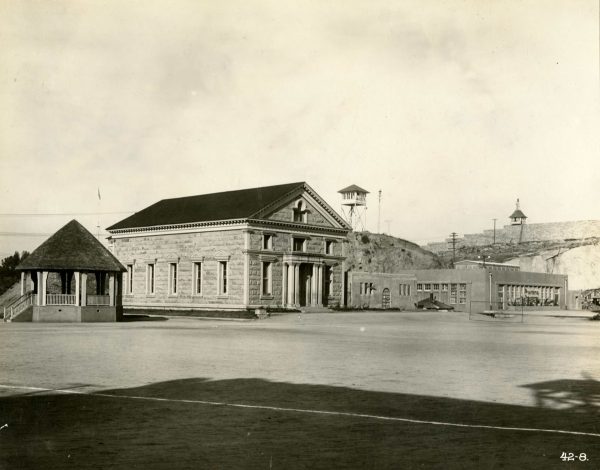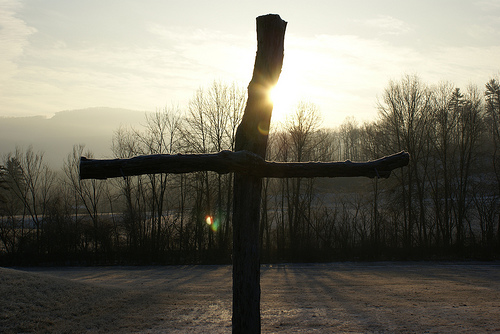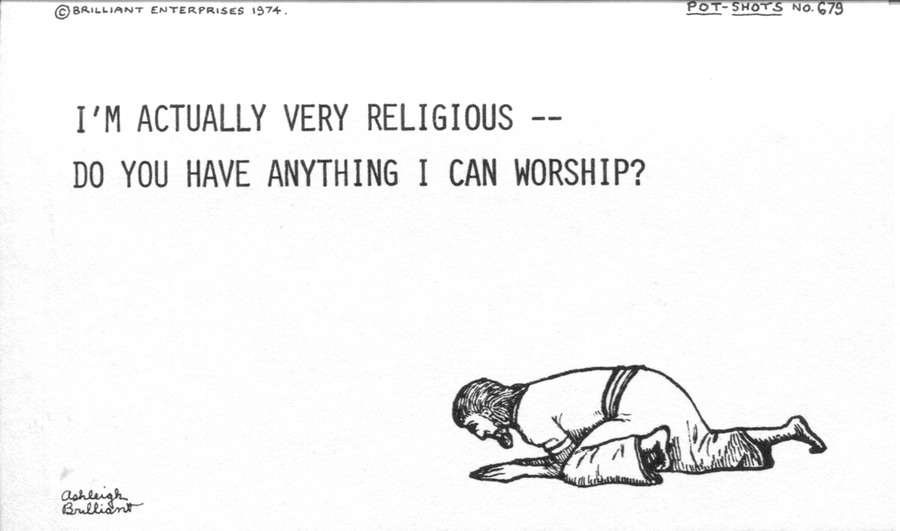
This past Sunday was the first Sunday of Advent. I had meant to add to the sermon the lyrics of a song that just happened to come on while I was finishing writing the sermon. I was listening to Johnny Cash’s At Fulsom Prison and he closed out the concert with “The Greystone Chapel” written by an inmate, Glen Sherley. Sherley himself had a tumultuous life that ended tragically.
It was such an odd circumstance that the words of the final refrain fit the sermon that had already been written. As Isaiah and Psalm 122 talk about the Temple of the Lord as the source of joy, wisdom, and justice so we are the Temple today made up of living stones.
Now this grey stone chapel here at Folsom
It has a touch of God’s hand on every stone
It’s a flower of light in a field of darkness
And it’s given me the strength to carry onInside the walls of prison my body may be
But my Lord has set my soul free
The audio of the sermon can be found here and the text is below.
First Sunday of Advent Year A
Isaiah 2:1-5
Psalm 122
Romans 13:11-14
Matthew 24:36-44
This morning is the first Sunday of Advent. We have sung our “O Antiphon,” lit the first candle on our wreath,” and we have recited the collect, which begins, “Almighty God, give us grace to cast away the works of darkness, and put on the armor of light, now in the time of this mortal life in which your Son Jesus Christ came to visit us in great humility.” Welcome to Advent!
Advent is a time when we cannot help but think about Christmas with its trees and lights, presents and feasts. So I think for many of us it always comes as a surprise when we get to our Gospel reading.
24:36 But about that day and hour no one knows, neither the angels of heaven, nor the Son, but only the Father. … 42 Keep awake therefore, for you do not know on what day your Lord is coming. 43 But understand this: if the owner of the house had known in what part of the night the thief was coming, he would have stayed awake and would not have let his house be broken into. 44 Therefore you also must be ready, for the Son of Man is coming at an unexpected hour.
Why all this apocalyptic talk? Why all of this end times stuff? That makes many uncomfortable at any time (“haven’t we moved beyond such language”?) but this season is about the baby Jesus! Actually, no, it is not. Advent means “arrival” and is about our expectation of Jesus’ second coming. In fact, the Latin adventus is the translation of the Greek Parousia, the term used in the New Testament to refer to that time when Jesus will return. Advent and our readings in this season focus not so much upon the coming of God in the baby Jesus and the incarnation of God in man, that is the season of Christmas, but rather our attention is directed to preparing ourselves for the risen Christ coming again in glory to judge the world and finally established his kingdom in the new heaven and new earth.
Jesus’ disciples were waiting and expecting the arrival of the Messiah as well. In fact most Jews of the time were anxious and eager for God to intervene and send his promised anointed one who, as Isaiah said, would “judge between the nations, and shall arbitrate for many peoples; they [would] beat their swords into plowshares, and their spears into pruning hooks; nation [would] not lift up sword against nation, neither [would] they learn war any more.”
Some believed that the time was so close that they went out into the wilderness and established a community by the Dead Sea, they even had their own scriptures depicting the final battles between the Sons of Light and the Sons of Darkness. Others took a more pragmatic approach and believed that God would support them in an armed revolt. Never did they suspect that God would send a human sacrifice, an offense to their ancient sensibilities as much as it is to our modern ones.
Jesus knew all of this. He knew that he was the answer to their prayers and that many would find that answer woefully inadequate. He knew that they would get impatient, waiting for the ultimate fulfilment of Isaiah’s words. And he knew we would too. “How long O Lord, how long?” Jesus and the disciples were already 700 years from the time of Isaiah and we are now nearly three times that from Jesus himself. His message to his disciples then is just as relevant today. “Keep awake therefore, for you do not know on what day your Lord is coming.”
As a brief aside, I think it is important to address our ignorance. Jesus tells us very directly that we will not know the day or hour when he will come again. That is something that we know that we don’t know. We should also remember that there are also many other things that the Bible does not tell us. We do not know the exact details of creation, for example, or what happens at the precise moment when we die, or any number of other things. It is understandable that we want to know, but we must learn that it is OK not to know some things. Why do I bother to mention this? Because far too often we allow our quest to know the unknowable to distract us from what we know. And what we DO know is that we are to “wake from our sleep,” as Paul says, and to always be ready for the Son of Man’s arrival.
So, we are awake. What do we do now? We prepare ourselves and our world for his coming. On my second Sunday at St. B’s I preached on living “in the in-between.” What it is that we are to do as we live in this foreign land; a part of this broken world, yet saved and redeemed knowing that this is not all that there is and that we will be restored by God. Our readings that Sunday showed us that we are to spend this time praying and working for the welfare of this world even as we wait expectantly for the world to come. We are also to continue to live, not to give up on ourselves or this world so that as we continue to walk “between two worlds,” we are to look, receive, and be grateful for God’s healing.
Today’s readings lead us to think about our corporate role in this intermediate time, to consider what it means that we are the Temple of God. As Paul elsewhere makes it plain, “you are God’s Temple and …God’s Spirit dwells in you” (1 Cor. 3.16).
So the prophet said, (Isa. 2:3) “Come, let us go up to the mountain of the LORD, to the house of the God of Jacob; that he may teach us his ways and that we may walk in his paths.”
And the psalmist (Ps. 122:1) I was glad when they said to me, “Let us go to the house of the LORD!”
Isaiah and the psalmist offer the future vision of all nations coming to the Temple in Jerusalem to hear God’s teaching and receive his justice. We, the community of saints, we the community of St. B’s are God’s Temple.
But what does it mean for us as individuals, as a community, and as an institution to be God’s Temple? It seems a fitting question to ask, not just in Advent, but also in this time of transition and reflection. Of course Paul is using a metaphor, but if we extend that imagery, what does this Temple look like? What makes up its structure and character?
The Temple in Jerusalem was high up on a platform that was built on a mountain. Isaiah says,
In days to come the mountain of the LORD’s house shall be established as the highest of the mountains, and shall be raised above the hills; all the nations shall stream to it.
The Temple is to be set high up where all can see it and so should we be. As Jesus said, (Matt. 5.14) “You are the light of the world. A city set on a hill cannot be hid.” St. B’s should be prominent, not in its physical location, but as a place that is known as light, as the Lord’s house. So we need to make sure that our friends and neighbors know that we are here and that this is a place for them to come and be welcomed. I think St. B’s does a very good job at this, through programs like Room at the Inn and our engagement with various local ministries, not to forget the pre-school and soccer programs. But what will they find when they are here?
Teaching Truth and Justice
The House of the Lord is the place from which truth and justice must flow. A moment ago we heard Isaiah say that all nations would stream to the mountain of the Lord. Why? So “‘that he may teach us his ways and that we may walk in his paths.’ For out of Zion shall go forth instruction, and the word of the LORD from Jerusalem.” If St. B’s is to be the Temple of the Lord then we must ensure that it is his word that is spoken here. That those who come and visit hear the Gospel of Christ proclaimed loud and clear so that they might “walk in his paths.”
But we must be ready to recognize that the Gospel is life-changing and many will not like the look of God’s path. So we must be strong and firm in the face of those who would compromise God’s word, because the nations are not streaming to hear simple “Have a Nice Day” homilies. They have come to hear the word of the Lord, God’s instruction, his direction for their lives.
When and where God’s word is proclaimed there comes judgment and justice. Consider again Isaiah’s words. In the final days, when God’s rule is firmly established, the nations will come to his mountain to hear his word and “he shall judge between the nations, and shall arbitrate for many peoples.” Just as Jesus proclaimed, when he comes again God will judge, he will punish the wicked and reward the faithful and the result, says Isaiah, is “they shall beat their swords into plowshares, and their spears into pruning hooks.” Notice that peace, true lasting peace where nations will no longer fight wars, nor even teach warfare, occurs only where God’s justice reigns.
We are not God and we cannot dispense judgment and justice to the nations as God will do. But we can and must work for justice where we are through the teaching of his Word and our obedience to his instruction. God’s house must be a place of peace and justice, where people of our community know that they can come to receive love, aid, forgiveness, and healing.
The Place of Love
We as individuals are also God’s Temple. We are the stones of the structure, if you will, and God’s spirit lives in each of us. In the verses just prior to today’s reading in the Epistle, Paul reminds us of the second greatest commandment. “Owe no one anything, except to love one another; for the one who loves another has fulfilled the law.” As Jesus said when confronted by the Pharisees and Paul reiterates here, all other laws given by God to Moses can be fulfilled if we simply and completely love God and love one another. This is the final hallmark of the Temple and its holy city is that its residents are constantly giving themselves for one another in love.
In the psalmist’s ideal vision “Jerusalem is built as a city that is at unity with itself.” Jerusalem has never been a city fully at peace or in unity within itself, not in the psalmist’s day or ours. St. B’s, I would hazard to guess, is like Jerusalem in that the inhabitants of this community are not always loving one another. Christian communities are ironically and sadly often the worst at showing love for each other. There are fights within churches, within denominations, against denominations and so on. In my brief time here I have found St. B’s to be an exception to this expectation, but I know it was not always so and this strength of love can change in an instant if we do not foster it.
Sadly division within the community of Christ is nothing new. Most of Paul’s letters where written to churches who were engaged in fierce internal conflict. But the answer always remains the same: “love the Lord your God with all your heart, mind, and strength” and “love your neighbor as yourself.” If we, the living stones, do not begin with this love, then the Temple will be nothing more than a whitewashed sepulcher. But when those stones are touched by God a building becomes a Temple, a group of people become a church, and his Kingdom draws nearer.
We do not know the day or the hour that Jesus will come again, but we DO know that we are to be God’s holy people, a royal priesthood serving in the House of the LORD. We know also that Gods Temple is to be set apart, known in the city and the world as a place where the Gospel of Christ is proclaimed, where God’s justice reigns, and where those who worship also seek to love others as themselves because God loved them first.
Lord, in the time of this mortal life, in this time of darkness, let us be your House, your Temple set upon your holy mountain.
“O house of Jacob, come, let us walk in the light of the LORD!”
Amen. ✠




